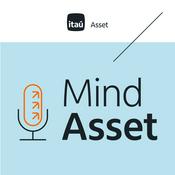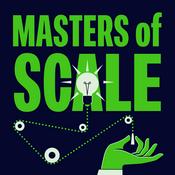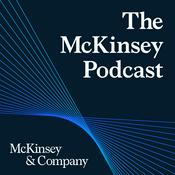72 episódios
Breeding for profitable, efficient, locally adapted and sustainable cattle with Troy Rowan University of Tennessee
30/1/2026 | 47minCurrently beef cattle production faces a profitability challenge driven by rising feed costs and efficiency gaps. For cow-calf operations, particularly where producers operate on forage-based systems, the biggest variable cost is cow feed, yet geneticists lack precise selection tools for measuring and improving forage intake and conversion efficiency.
Today we are joined by Troy Rowan from the University of Tennessee, where he investigates economically important traits in beef cattle with particular emphasis on cow efficiency, local adaptation, and genetic approaches to increasing sustainability. His research focuses on developing novel measurement approaches to create practical selection tools for grazing efficiency.
The opportunity lies in emerging technologies. While decades of work developed feed efficiency tools for concentrate-fed feedlot environments, these measurements don't translate to grazing systems. Rowan's team explores indicators serving as stand-ins in genetic evaluations, using emissions as metabolic proxies, leveraging precision technologies like AI and computer vision to capture phenotypes previously impractical to measure on large animal groups.
Methane and CO2 are important because they are the best indicator of metabolism currently available. Even though they are imperfect metabolism needs to be included to provide an indicator for cow feed costs.
Looking forward, epigenetics and other "omics" technologies promise to revolutionize individual animal management. Rather than just predicting genetic potential passed to offspring, these tools could enable phenotypic predictions based on epigenetic marks, gene expression, or metabolomics. A feedlot receiving heterogeneous cattle could place animals in appropriate pens and management protocols based on predicted disease resistance, growth potential, or feed efficiency—filling in the 70% of trait variation that genetics alone doesn't capture. After measuring 10,000-plus animals to develop robust genetic evaluations, the next frontier is translating that knowledge into practical tools that work across the one the billion plus cattle worldwide, from intensive North American operations to pastoral African systems where data recording infrastructure remains the primary bottleneck.
Send us a textLow cost, locally produced zero emissions nitrogen fertilizer with Frere Byrne PlasmaLeap Technologies
22/1/2026 | 36minOver the last century our food systems have become increasingly reliant on synthetic nitrogen. This nitrogen fertilizer is mostly made through the energy intensive haber-bosch process in centralized production plants, often located in politically sensitive location, that have a carbon footprint multiple times greater than the aviation industry.
Today we are joined by Frere Byrne of PlasmaLeap Technologies who is developing low cost mobile technology to systhesis zero emissions ammonia from air and water. I caught up with Frere to discuss the impact of locally produced nitrogen that is not relaint on fossil feuls and long and centralized supply chains
PlasmaLeap's modular chemical plants—called NFix—operate as single 40-foot containerized units producing industrial-grade nitrates and ammonia from air, water, and renewable electricity. These units run autonomously using algorithms, requiring no specialized operators and can be controlled remotely from company desks. For large-scale applications, units stack like batteries to create regional facilities. For smallholder farmers, Plasma Leap has developed miniature versions funded through a Gates Foundation grant, targeting production costs below the lowest commodity urea prices of the past 20-30 years.
The technology addresses identical challenges across vastly different farming contexts. Whether a one-hectare subsistence farm in sub-Saharan Africa or a 100,000-hectare cereal operation in Australia, farmers face volatile input prices, intermittent supply chains, and little control over product quality.
Send us a textAddressing the Climate, Agriculture, Landscape and Food Security Nexus through policy with Tobias Gräs Danish Agriculture and Food Council
08/1/2026 | 49minDenmark made headlines in 2024 as the first country to implement a carbon tax on livestock emissions. The country's ambitious 70% emissions reduction target by 2030 includes agricultural reductions of 55-65%. What makes Denmark's policy truly remarkable isn't the tax itself—it's the 60% tax deduction corresponding to mitigation potential. This signals that Denmark's approach isn't anti-livestock, but rather pro-innovation, explicitly avoiding targets on livestock numbers while incentivizing farmers to adopt technologies and practices that can reduce emissions by up to 40%.
The impact of Denmark's inclusive policy-making approach through the tripartite agreement cannot be understated. Ministers, farmer representatives, nature organizations, labor unions, and industry came together to craft comprehensive solutions extending far beyond livestock taxation—encompassing voluntary land reform with full compensation, significant afforestation efforts, biodiversity enhancement, and water protection.
Today we are joined by Tobias Gräs, Head of Policy at the Danish Agriculture and Food Council, where he coordinates climate action through the World Farmers' Organization and represents Danish farmers and major European cooperative businesses in Brussels. Fresh from COP 30 in Belém, Brazil, Gräs brings insights from Denmark's pioneering policy implementation and an ambitious $50 million Green Climate Fund project transforming dairy production in Kenya's Lake Victoria region.
The Tunza GCF project demonstrates how Denmark's cooperative model can drive change across vastly different contexts. Partnering with FAO and the Green Climate Fund, this five-year initiative received $50 million in funding in 2025. with an additional $10 million loan component from Kenyan banks.
The project targets 130 agricultural cooperatives representing 80,000 farmers across six value chains in Kenya's Lake Victoria region: dairy, coffee, tea, poultry, African leafy vegetables, and fruit trees. Kenyan dairy cows in the Lake Victoria region average just three liters per day—with potential to reach seven liters through improved feed and management practices. The project aims to achieve 1.2 million tons of greenhouse gas emission savings by 2030 and 4.3 million tons by 2045.
The project's success relies on how farmer-owned cooperatives returning value to farmers through dividends and the provision of technical assistance to cooperatives on climate-efficient practices across value chains.
As Denmark prepares to scale its domestic climate policies while simultaneously supporting Kenya's transformation through the Tunza project, we welcome Tobias Gräs to discuss the successes and challenges of translating ambitious climate targets into practical action across radically different farming systems.
Send us a textAnimal health as a climate solution with Nick Wheelhouse, Edinburgh Napier Univeristy
10/12/2025 | 52minAnimal Health as a Climate and Food Security Solution
In this episode of the Ash Cloud podcast, we explore an often-overlooked opportunity in the fight against climate change with Dr. Nick Wheelhouse, Professor of Comparative Infectious Disease at Edinburgh Napier University and co-lead of the Global Research Alliance Animal Health and Greenhouse Gas Emissions Intensity Network.
Dr. Wheelhouse brings unique expertise spanning both veterinary research and animal science. After completing his BSc in Agricultural Biochemistry and Nutrition at Newcastle University and PhD in Animal Science at the University of Aberdeen, he worked as a Senior Postdoctoral Scientist at the Moredun Research Institute before joining Edinburgh Napier University. His research focuses on bacterial pathogens affecting reproduction—particularly Chlamydia, Brucella, Coxiella burnetii, and Listeria—in both humans and livestock, with extensive work on disease surveillance across Africa.
The central thesis challenges conventional thinking: while sick animals are universally recognized as unproductive, the climate implications remain surprisingly underexplored. Wheelhouse reveals that approximately 20% of global animal production is lost due to health issues, with higher burdens in the Global South. This represents not just wasted resources and food insecurity, but significant greenhouse gas emissions as animals continue producing emissions while failing to produce food.
The conversation explores specific case studies, including ongoing work with Kenyan dairy farmers where 53% of animals show subclinical mastitis. For farmers earning approximately $70 per cow per year, the $10 treatment cost represents a substantial investment. Yet through basic hygiene and management interventions rather than expensive pharmaceutical solutions, the project aims to demonstrate tangible productivity improvements that make economic sense while delivering environmental co-benefits.
Throughout the discussion, Wheelhouse unpacks the complexity of animal health as a climate solution. The counterintuitive reality is that healthier, more productive animals do produce more emissions, but they generate far more food per unit of emission. The goal is to close the productivity gap caused by disease, thereby reducing the emissions intensity of animal-source foods rather than absolute emissions. In Tanzania, research on abortion in livestock suggested potential emissions reductions of 8% in cattle and 16% in small ruminants, while hundreds of thousands could benefit from the additional food that would otherwise be lost.
Wheelhouse is candid about the challenges: the complexity of measuring disease impacts, lack of robust data collection systems in many regions, and difficulty quantifying climate benefits from health interventions. These have kept animal health as a "slow burner" in climate discussions. However, he notes an encouraging shift following FAO reports that elevated the topic among international partners and potential investors.
The discussion touches on broader implications, including research from Tanzania showing that increased livestock disease correlated with decreased school attendance for girls—demonstrating how animal health impacts cascade through communities beyond immediate productivity losses.
Looking forward, Wheelhouse emphasizes disease prioritization must account for local contexts, since farming systems and solutions vary dramatically across regions. He advocates for starting with achievable interventions that farmers can see working among their peers, rather than waiting for perfect technological solutions. The key is empowering farmers with tools delivering tangible results worthy of their effort and investment.
Ultimately, this conversation makes a compelling case for why animal health
Send us a textGlobal food security, innovation, and the investment gap with Maximo Torero UNFAO
25/11/2025 | 1h 3minThe cost living is an increasing global challenge. Food inflation in 2023 was 13.6%, however food prices increased by up to 30% in many low income countries. Currently 60-80% of voters consider food price as a decisive factor in their choice of candidate and across 60% of countries food costs represent more than 25% of the CPI basket.
Right now, 670 million people—8.2% of our global population—are going hungry. By 2030, projections show that 300 million people in Africa alone could face food insecurity. But here's the paradox: we have the technology, the knowledge, and the resources to address this crisis. So what's holding us back?
Food insecurity is never just about hunger. Throughout history, the impacts of food crises have freuquently included geopolitical instability, increased migration and conflcit.
Today we are joined by Maximo Torero, Chief Economist at FAO, where he is working to build resilient, inclusive, and sustainable agrifood systems. Previously Maximo served as served as Executive Director at the World Bank Group.
Send us a text
Mais podcasts de Negócios
Podcasts em tendência em Negócios
Sobre ASH CLOUD
This is series of conversations discussing global food sustainability with guests who bring a deep understanding of the environmental and cultural challenges facing our society and creative ideas on how to address them.
Site de podcastOuça ASH CLOUD, PrimoCast e muitos outros podcasts de todo o mundo com o aplicativo o radio.net

Obtenha o aplicativo gratuito radio.net
- Guardar rádios e podcasts favoritos
- Transmissão via Wi-Fi ou Bluetooth
- Carplay & Android Audo compatìvel
- E ainda mais funções
Obtenha o aplicativo gratuito radio.net
- Guardar rádios e podcasts favoritos
- Transmissão via Wi-Fi ou Bluetooth
- Carplay & Android Audo compatìvel
- E ainda mais funções


ASH CLOUD
Leia o código,
baixe o aplicativo,
ouça.
baixe o aplicativo,
ouça.







































